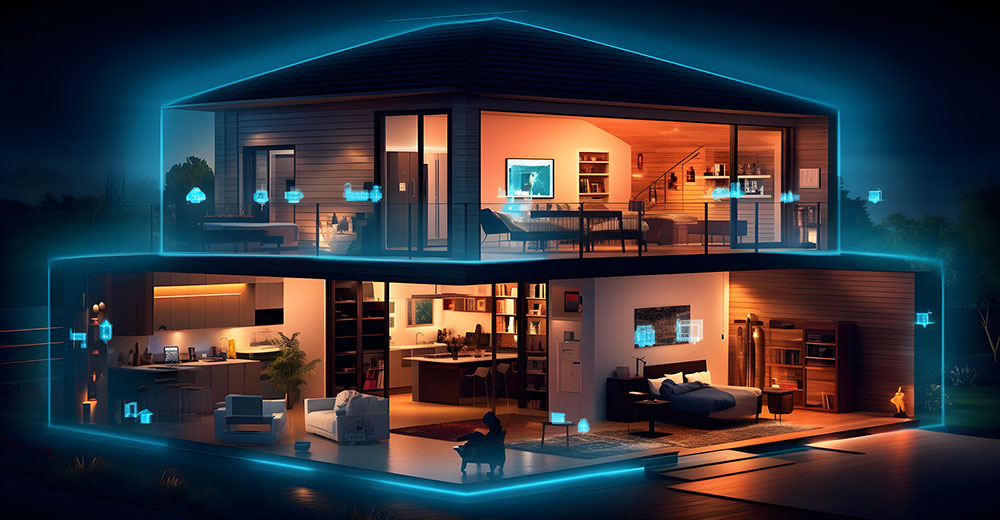More than just an easier way to live
Convenience has always been a big seller for home automation—but what about adding value to a home? It’s no secret. Smart homes are gaining popularity among all demographics; older homeowners value security features, and younger ones prioritize the convenience and ease of living. Generational preferences aside, a home’s value speaks to all homeowners and builders alike—and due to an increasing demand, smart home technology might just be a way to give a home an edge above the rest.
In fact, a house’s value can increase by up to 5% with home automation; this would be $15,000 on a $300,000 house, according to Consumer Reports. The growing demand of smart homes among home buyers and industry growth could make home automation a worthwhile investment for the future.
Popularity and convenience
According to a Coldwell Banker study, more than one in four adults in the U.S. have smart home products, but that number doubles in the millennial generation. These homeowners are happy with their technology, too. Nine out of ten homeowners who use smart home technology would recommend it to others. In this same study, 57 percent of Americans who have a smart home estimate 30 minutes per day is saved through their smart device technology installed in their homes. With an increase in the desire for convenience through technology, the numbers are only expected to rise. Based on Statista research, the smart home industry has shown explosive growth in the last few years and is predicted to reach $143 billion in 2020, three times its value in 2014.
Cost-savings
Smart homes are also becoming more and more money smart. We know smart thermostats can adjust to be more efficient, detecting how many people are in a room, and allowing easy adjustments on a mobile device, saving money on heat regulation. According to a Nest study, consumers save an average of 10 to 12 percent on heating and 15 percent on cooling. Smart lighting can also increase the energy efficiency of a home and help reduce costs. Lighting uses 11% of total energy, and studies suggest a third of this usage could be reduced with the help of technology. Remote lighting control through an app allows home owners to easily manage lights all over the home, and turn lights on and off when leaving and returning home. Americans with smart home appliances agree they save money: 45 percent reported that they save an average of $1,100 per year through climate automation alone in the home.
Safety & security
In a recent survey by Icontrol Networks, 90 percent of respondents said home security is a top reason to invest in a smart home. With break-ins happening every twenty-five seconds through the United States, the ability to detect and deter burglars is an important player in keeping the family and home safe from intruders. Smart devices can also detect fire, carbon monoxide, moisture levels, radon and more, which gives all the more importance to being able to control these devices from anywhere on a smart phone or tablet.
These benefits of convenience, efficiency and security have proven to increase the perceived value of a home with a cutting-edge home automation system. Homeowners see decreased maintenance costs and home insurance premiums, home sellers can sell their homes at higher prices, and home buyers are more willing to pay more for new systems and upgrades. The value of a smart home is undeniable, and before we know it, home automation will be a must-have box to check off the appraisal list.




